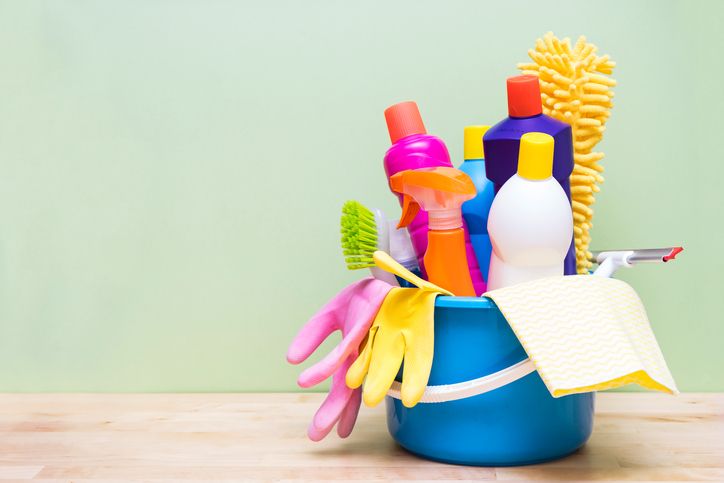The Dangers of Hazardous Waste Around the House
When we hear “hazardous waste,” orange rivers of industrial sludge usually come to mind. But there are several common, everyday products in every home that are hazardous for humans and pets. They’re toxic. They could catch fire, explode, or corrode. They’re in your kitchen cupboards and your garage. You might accumulate as much as 100 pounds of household hazardous waste (HHW), according to the EPA. Do you know what they are and how to handle them safely?
What Hazards are Lurking in Your House?
How can you tell if something is hazardous? Check product labels for words like “caution,” “warning,” “danger,” “flammable,” and “poisonous.” Put your own big “TOXIC!” label on the container as a reminder; some warning text is in small print. If you see one of those words or something similar, you should handle and dispose of it with extra care. Common hazardous products found in the average American home include:
- Light bulbs
- Batteries
- Cleaners
- Aerosols
- Paints
- Oils and automotive products
- Pesticides
Safe Handling
Extra care and attention is required while handling hazardous products. It’s a good idea to shop smart and choose less hazardous products when possible. Before using products with possibly hazardous ingredients, read the instructions on the container for storage information, dangers, and safe handling and disposal. Also, remember to:
- Keep it in the original container until use. Do not put it in food containers.
- Do not remove the labels; they contain important information.
- Never mix hazardous products together. You might get a violent reaction!
- Use hazardous chemicals in well-ventilated areas.
- Use gloves and eye protection.
- Don’t smoke, eat, or drink when using hazardous products.
- Be careful with empty containers as there may be chemical residue.
Safe Disposal
Products containing hazardous ingredients cannot be thrown away like other things in your home. They can harm children and pets, contaminate septic tanks, pollute wastewater treatment systems, and injure sanitation workers. Don’t:
- Pour it down the drain
- Dump it on the ground
- Spill it into storm sewers
- Put it out with the regular trash
Find your local household hazardous waste drop-off site. This is the place to take most of the HHW mentioned. Ask your local environmental, health or solid waste agency for guidance; many areas have laws regulating disposal. Some communities have household hazardous waste pick up service. Check around and see if there are local businesses willing to take hazardous waste for proper disposal or recycling, like garages (oil) and big home improvement stores (light bulbs). Be especially careful with aerosol cans, which can explode if punctured or exposed to heat. Take them to a household hazardous waste drop-off site, available in most cities
How to Keep Pets and Children Safe
Toddlers could easily get into the cupboard under the kitchen sink and get their hands on a bottle of bleach or drain cleaner. A curious pet could wander into an open garage cabinet and come into contact with paint thinner and car fluids.
Antifreeze for example is highly poisonous in even small doses, but has a sweet taste to cats and dogs. Keep hazardous products tightly sealed and out of the reach of children and pets. Do not leave containers open, return them promptly, and close closets and cabinets containing hazardous products when you’re done.
Install child safety locks on all accessible cupboards storing hazardous products. Many mundane household chores and tasks involve products with some nasty substances. Inattention or clumsiness could result in injury or illness.
Careless disposal can have harmful effects as well. Take a little extra time and effort to ensure you don't cause harmful problems for yourself, your family, and others. If you want to learn more about hazardous waste and environmental safety, enroll in online HAZWOPER Training from 360training.com and enjoy convenient, self-paced learning 24/7.









